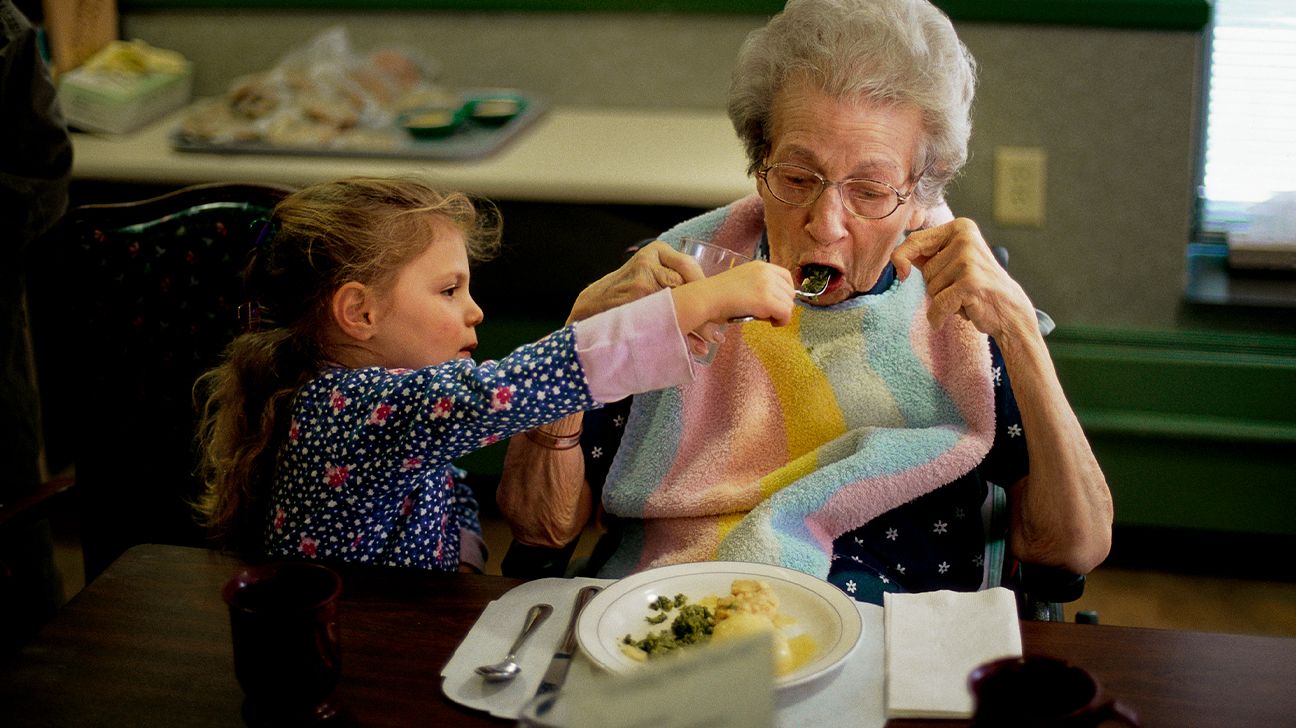It’s not uncommon for people with Alzheimer’s disease to have diminished appetite or stop eating entirely. Here’s why this condition reduces appetite and how to help someone with Alzheimer’s increase their intake.

Alzheimer’s disease is well known for its effects on memory and cognition. Less recognized, however, is its effect on appetite. It’s quite common for people with Alzheimer’s disease to feel less hungry or stop eating altogether.
If you have a loved one or patient with Alzheimer’s who is eating less, it’s only natural to be concerned about their well-being. However, certain strategies can help make sure they are eating enough.
People with Alzheimer’s disease may stop eating for a variety of reasons. According to the Alzheimer’s Association, people in the middle or late stages of this disease may feel overwhelmed by too many food choices, forget to eat, or think they’ve already eaten.
Any of these possibilities may cause them to become agitated, further decreasing the likelihood of eating.
Low energy levels can also be a roadblock to eating for people with Alzheimer’s. Though sitting down to a meal may not seem like a high-energy activity to younger people, for people with this condition, even everyday tasks can sap energy reserves.
Feelings of depression are another potential cause of a drop-off in eating. Up to 40% of people with Alzheimer’s experience depression, a known cause of poor appetite.
As the disease progresses, many people also experience chewing and swallowing issues. If they’re unable to properly chew and swallow food, they’re less likely to take in enough food.
Not eating is a red flag. It can take days or longer for the obvious effects of eating less to develop, but people may faint if they don’t eat anything for a day or two.
Serious health consequences, such as severe anemia, can develop after weeks of malnutrition. A lack of fluid intake can lead to urinary tract infections or kidney damage.
When people with Alzheimer’s slow or stop their eating, they may quickly lose weight. Unintentional weight loss is associated with increased mortality in seniors — so dropping pounds in your later years isn’t necessarily a good thing.
Going too long without eating or drinking also leads to dehydration. Signs of dehydration to watch for include minimal urinary output, dark-colored urine, rapid heart rate, dry mouth, and lightheadedness.
Poor food intake can worsen Alzheimer’s symptoms. If you notice a loved one with this condition is more disoriented than usual, has excessive mood swings, or is more agitated, it may be due to not eating.
With the right techniques, you may be able to help a person with Alzheimer’s eat well. Try these approaches at mealtimes:
- Limit distractions and create a comfortable environment at meals.
- Make sure the food is bite-sized and easy to chew and swallow.
- Try to keep meal and snack times predictable.
- Always have water or another fluid that they like available and easy to get.
- Use unbreakable cups or mugs that are easy to handle and drink from.
- Offer familiar or favorite foods.
- Serve food at a pleasant temperature (not too hot or cold).
- Keep the table setting simple, such as providing just a plate, napkin, and fork. Unnecessary extras can cause confusion.
- If communication is limited, try showing pictures of foods to determine what they would like to eat.
- If an Alzheimer’s patient continues to eat poorly (or not at all), consult their doctor or a registered dietitian.
If people with Alzheimer’s resume eating, healthy nutrition may help prevent some negative health effects.
On the other hand, if a refusal to eat becomes long-term, it can worsen their condition or cause complications. Older people with poor eating habits are at
- malnutrition
- falls
- low muscle tone
- impaired immune health
- slow wound healing
At what stage of Alzheimer’s disease do people stop eating?
A decreased appetite can occur at any stage of Alzheimer’s disease, but it’s most common in the middle and later stages.
What are the symptoms of the final stages of Alzheimer’s disease?
In addition to reduced appetite, some hallmarks of the final stages of Alzheimer’s include very limited speech (such as just a few words or phrases), bowel and bladder incontinence, impaired mobility, and needing assistance with everyday activities like eating and bathing.
How long does the final stage of Alzheimer’s last?
The final stage of Alzheimer’s disease can last anywhere from a few weeks to a few years.
Watching someone with Alzheimer’s refuse to eat can be frustrating for caregivers and, ultimately, can contribute to their decline. As much as it’s in your power, use the techniques above to help a patient or loved one with this condition increase their food intake.
